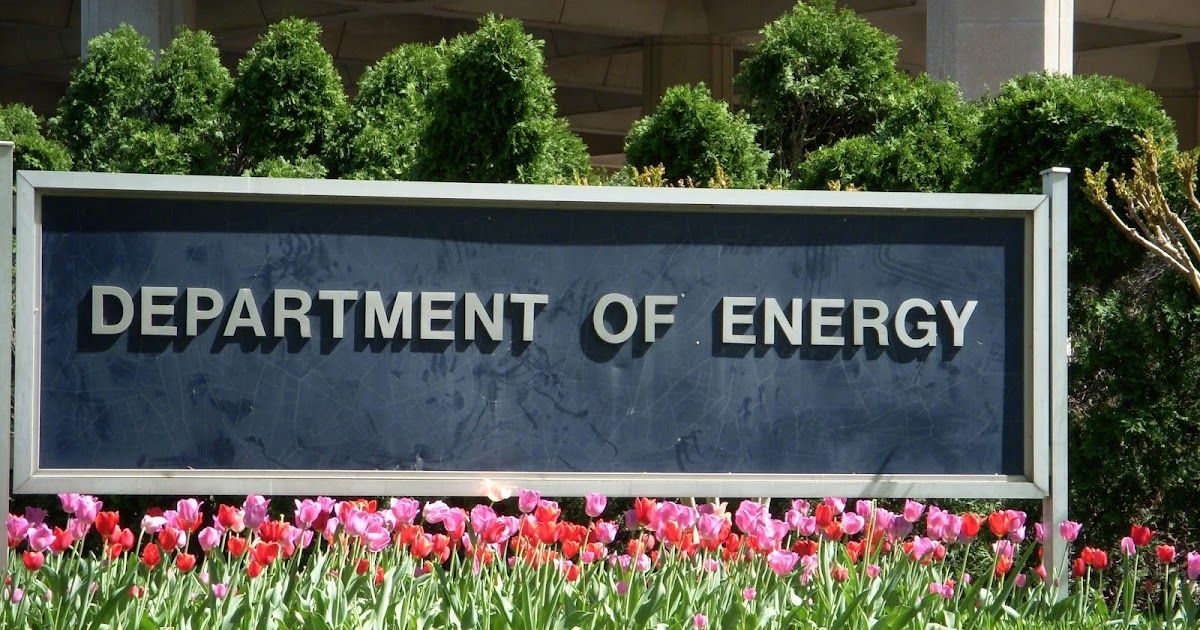Starting a new business in South Carolina, especially as a general contractor, involves navigating a maze of legal requirements and regulations. This step-by-step guide is designed to simplify the process of obtaining a South Carolina General Contractors License. From choosing the right business structure to securing the necessary permits and licenses, we’ll explore the essential steps you need to take to establish and operate your construction business legally in the Palmetto State.
Key Takeaways
- Prospective general contractors in South Carolina must understand the state’s business structure requirements, including the advantages of forming an LLC.
- Obtaining a General Contractor’s License requires meeting prerequisites, preparing for the state exam, and submitting a comprehensive application.
- Contractors must comply with various local, county, and state business licensing regulations, and stay informed about professional and occupational licenses.
- Environmental permits and adherence to construction regulations are critical for ensuring public health and safety and operating legally.
- Utilizing third-party services can streamline the licensing process, save time, and help avoid potential compliance issues.
Understanding South Carolina’s Business Structure Requirements
Choosing the Right Business Entity
When starting your journey as a general contractor in South Carolina, selecting the right business entity is a pivotal decision that will impact your liability, taxation, and overall management structure. Choosing the appropriate business structure is essential to align with your operational needs and future growth objectives. In South Carolina, you have several options, including sole proprietorships, partnerships, Limited Liability Companies (LLCs), and corporations.
Each entity type comes with its own set of legal and tax implications. For instance, an LLC can offer personal liability protection and tax benefits, while a sole proprietorship may be simpler to set up but offers less protection. It’s important to weigh these considerations carefully:
- Sole Proprietorship: Simple, no separate legal entity from the owner.
- Partnership: Two or more individuals share ownership and responsibilities.
- LLC: Offers liability protection and flexible tax options.
- Corporation: More complex, suitable for larger businesses with shareholders.
Before finalizing your decision, it’s advisable to consult with legal or business advisors to ensure that your choice best suits your specific needs. Remember, the structure you choose will influence every aspect of your business, from daily operations to long-term strategic planning.
The Benefits of Forming an LLC in South Carolina
Forming an LLC in South Carolina offers numerous advantages for general contractors looking to establish a solid foundation for their business. Limited liability protection is a key benefit, shielding personal assets from business debts and legal judgments. This structure also provides enhanced credibility to clients and suppliers, potentially leading to more business opportunities.
- Flexibility in management and the ease of distributing profits are attractive features of an LLC.
- Taxation is often simpler, as LLCs can choose to be taxed as a sole proprietorship, partnership, or corporation, providing significant flexibility.
- The process of setting up an LLC in South Carolina is relatively straightforward, with clear steps to follow:
- Name Your LLC
- Choose a Registered Agent
- File the Articles of Organization
- Create an LLC Operating Agreement
- Obtain an EIN
The initial cost to file the Articles of Organization is $110, which is a small investment for the long-term benefits an LLC can offer.
It’s important to note that while there are no annual reports required for LLCs in South Carolina, staying compliant with local, county, and state licensing requirements is crucial for uninterrupted operations.
Navigating State and Local Registration Processes
Once you’ve chosen your business entity and are ready to establish your presence as a general contractor in South Carolina, navigating the state and local registration processes is your next critical step. Ensuring compliance with all registration requirements is essential to avoid legal and financial pitfalls. In South Carolina, as in many states, the process involves several key actions:
- Registering with the Secretary of State, which may include filing a Certificate of Authority for foreign entities.
- Acquiring necessary permits, such as a sales tax permit if dealing in taxable goods or services.
- Understanding and adhering to any additional regulations specific to online businesses, if applicable.
It’s important to note that while third-party services like BusinessRocket can facilitate the registration process, they do not replace the need to comply with state laws and regulations. A consultation with a legal or business expert is recommended to ensure that your business is properly registered and in good standing.
The journey to becoming a licensed general contractor in South Carolina involves meticulous attention to the registration process, setting a solid foundation for your business operations.
Securing Your General Contractor’s License in South Carolina

Meeting the Prerequisites for Licensure
Before submitting your application for a South Carolina General Contractor License, it’s crucial to ensure that you meet all the prerequisites. The process involves several key steps, each designed to verify your qualifications and readiness to serve as a responsible contractor in the state.
- Step 1: Verify that you have the necessary education and training. This typically includes a combination of formal education and hands-on experience in the construction field.
- Step 2: Prepare to pass a comprehensive background check. A clean record is essential to demonstrate your trustworthiness and integrity.
- Step 3: Familiarize yourself with the specific examination requirements. You’ll need to pass a state-recognized exam that tests your knowledge of construction laws, business management, and the technical aspects of contracting.
Once you’ve completed these steps, you’re well on your way to becoming a licensed general contractor. Remember, obtaining a license is more than a formality; it’s a commitment to uphold the standards and regulations of the industry.
Preparing for the State Contractors License Exam
The journey to becoming a licensed general contractor in South Carolina is rigorous, with the state contractors license exam being a pivotal step. Preparing for the NASCLA contractors exam is crucial, as it is a comprehensive test that evaluates your knowledge across various construction-related topics. The exam consists of 115 questions, covering material that you must be intimately familiar with to succeed.
To ensure you’re adequately prepared, consider the following steps:
- Familiarize yourself with the official study materials and code books relevant to the exam.
- Utilize practice tests that reflect the style and content of the actual exam.
- Review concise code-book references and answer keys to deepen your understanding.
- Focus on areas of the exam that are most challenging for you.
Remember, most states require a score of 70-80% to pass. It’s not just about passing, but mastering the material to excel as a professional.
By engaging with resources that are tailored to South Carolina’s specific requirements, you can streamline your study process. Practice tests and study guides that are customized to your state’s exam can be particularly beneficial. They provide a focused approach that can save you time and increase your chances of passing on the first attempt.
Submitting Your License Application
After meticulously preparing your application, the final step is to submit it to the relevant South Carolina authorities. Ensure all sections are completed accurately and that you have attached all required documentation before submission. This can typically be done online, by mail, or in person, depending on the agency’s submission guidelines.
Once submitted, the waiting period begins. The review process varies in length but expect it to take several weeks. During this time, it’s advisable to stay informed about the status of your application and be prepared to provide any additional information if requested by the licensing agency.
It’s crucial to be proactive during the waiting period. Use this time to prepare for the next steps, such as planning for your business operations or furthering your contractor education.
Remember, the fee associated with your license application can differ based on your business type and location. Some jurisdictions may charge a flat rate, while others may adjust the fee according to your business size or projected earnings. Here’s a simplified breakdown of potential fees:
| Business Type | Flat Fee | Variable Fee Based on Size/Revenue |
|---|---|---|
| Type A | $100 | $200 – $500 |
| Type B | $150 | $300 – $600 |
| Type C | $200 | $400 – $700 |
After your application is approved, you’ll receive your South Carolina General Contractor’s License, marking the beginning of your professional journey in the construction industry.
Complying with South Carolina’s Business Licensing Regulations
Identifying Necessary Local, County, and State Licenses
When starting or operating a business in South Carolina, it’s crucial to understand the various licensing requirements across different government levels. Local jurisdictions, such as cities and counties, often have their own sets of rules and requirements for business licenses. These are essential for any business operating within the jurisdiction and may include general business licenses, health permits, and sign permits.
At the state level, specific licenses and permits are mandated depending on the nature of your business. For instance, businesses in certain professions may require professional and occupational licenses, which are overseen by various governing bodies. It’s important to identify the appropriate agency for your business type and ensure compliance with all regulatory requirements.
To streamline the process, consider using the Business Licensing Agencies website, which provides a directory of local government bodies that issue business licenses, and the DBI website for a compilation of governing bodies for professional and occupational licenses.
Below is a list of common licenses you may need to acquire:
- General Business License: Required by most businesses operating in a city or county.
- Health Permits: Necessary for businesses like restaurants, from the local health department.
- Sign Permits: Required if a business intends to erect a sign.
- Professional and Occupational Licenses: Specific to certain job categories and professions.
Understanding the Role of Professional and Occupational Licenses
In South Carolina, as in many states, professional and occupational licenses are essential for legal operation in certain fields. These licenses are a testament to the holder’s qualifications and adherence to state standards. For general contractors, obtaining the appropriate license from the South Carolina Contractor’s Licensing Board is not just a formality; it’s a legal necessity to ensure public safety and trust.
- Professional Licenses: Required for legal service provision in specific professions.
- Environmental Permits: Necessary for businesses that may impact public health or the environment.
It’s crucial to distinguish between professional licenses and certifications. While both signify professional recognition, licenses are often legally mandated, whereas certifications may be voluntary but valued by employers.
To navigate the licensing landscape, one must understand the various levels at which licenses are required:
- State Licenses: Governed by state regulatory agencies.
- City or County Licenses: May be required by local government bodies.
- Professional and Occupational Licenses: Specific to certain job categories and professions, with oversight by designated governing bodies.
Renewing and Maintaining Business Licenses
In South Carolina, staying compliant with business licensing regulations is an ongoing process. Keeping your general contractor’s license current is crucial to avoid penalties and ensure your business operates legally. Here are some steps to help you with the renewal process:
- Keep track of expiration dates: It’s essential to know when your licenses and permits expire. Use a calendar system and set reminders to initiate the renewal process in advance.
- Check renewal requirements: Requirements can vary by state and local jurisdictions. Always consult your state or local government website or the issuing agency for specific renewal needs.
- Gather necessary documents: Prepare documents such as financial statements, annual reports, or proof of insurance well before the renewal deadline.
Renewing your license on time is not just a legal obligation; it’s a commitment to professional responsibility and the integrity of your business.
Remember that some licenses may need to be renewed annually or biennially. If you’re unsure about the renewal requirements for your business’s licenses, contact the South Carolina Small Business Development Center for guidance. For those who find the process daunting, third-party services offer assistance with license applications and renewals, which can simplify the entire process.
Addressing Environmental Permits and Construction Regulations

Assessing the Need for Environmental Permits
Before commencing any construction project in South Carolina, it’s crucial to determine whether your activities will require environmental permits. Environmental permits are essential for safeguarding public health and the environment, and failure to obtain the necessary permits can lead to significant legal and financial repercussions.
In South Carolina, the types of environmental permits required can vary based on the scope and nature of your project. Common permits include, but are not limited to:
- Construction permits for minor and major sources
- Prevention of Significant Deterioration (PSD) permits
- Nonattainment area permits
- Title V operating permits
It’s imperative to understand that the permitting process can be complex and time-consuming. Early assessment and application for these permits are advisable to avoid delays in your project timeline.
Additionally, certain businesses, such as restaurants, may need specific health-related permits from the Department of Health and Environmental Control. It’s important to conduct thorough research or consult with experts to ensure compliance with all relevant environmental regulations.
Adhering to Construction Industry Standards and Practices
In the construction industry, adherence to standards and practices is not just a matter of compliance, but a cornerstone of operational excellence. To ensure the highest level of workmanship and safety, contractors must evaluate contractor performance and understand the intricate details of licensing and insurance requirements.
- Evaluate contractor performance
- Understand licensing and insurance requirements
- Navigate legal and regulatory considerations
- Comply with local building codes
These elements are critical for successful construction projects and form the basis of a reputable business. Contractors must also navigate legal and regulatory considerations, which can vary significantly from one jurisdiction to another. Compliance with local building codes is essential, as it reflects a commitment to safety and quality.
By mastering these industry standards, contractors not only safeguard their projects but also reinforce their professional credibility. This dedication to excellence is what sets apart successful construction firms, enabling them to practice legitimately and thrive in a competitive market.
Ensuring Public Health and Safety Compliance
In South Carolina, ensuring public health and safety compliance is paramount for general contractors. Adherence to regulations and obtaining the necessary permits is not just a legal requirement, but a commitment to community well-being.
When it comes to environmental and health permits, contractors must navigate a variety of requirements. For instance, activities that impact public health or the environment may necessitate permits from the state’s Department of Health and Environmental Control. This is particularly relevant for businesses like restaurants that require a food permit.
It’s essential to understand that compliance extends beyond state-level requirements. Local health departments, for example, often issue health permits, while signage for a business may require a local permit.
Combining licenses from multiple levels of government is a common scenario. A restaurant serving alcohol might need a general business license, a local health permit, a state liquor license, and potentially a broadcasting license from the FCC. Contractors should be prepared for this multi-layered approach to compliance, ensuring all aspects of their operations meet the necessary standards.
Leveraging Third-Party Services for Licensing and Compliance

Exploring the Benefits of Using Licensing Services
When venturing into the construction industry, understanding the costs associated with obtaining and maintaining a general contractor license is crucial. Third-party licensing services offer a streamlined approach to navigating the complex web of requirements. These services can significantly reduce the time and effort you spend on research and paperwork, allowing you to focus on the core aspects of your business.
- Saves Time: Licensing services expedite the process by handling the bulk of administrative tasks.
- Expertise: They provide specialized knowledge of local, state, and federal regulations.
- Cost-Effective: Helps avoid penalties and delays that can arise from non-compliance.
- Convenience: Offers a one-stop solution for all your licensing needs, from application to renewal.
Boost Your Earnings Potential: A license isn’t just a certification; it’s a pathway to higher-paying projects and greater career opportunities in the construction industry.
It’s essential to ensure that you’re complying with all local and state regulations, as failure to do so can result in penalties, or even in your business being shut down. By leveraging third-party services, you can avoid these pitfalls and ensure that your business remains in good standing.
Comparing Third-Party Providers and Packages
When selecting a third-party service for obtaining your general contractor’s license, it’s crucial to compare the different providers and packages available. Each service offers a unique blend of features, support levels, and pricing structures. For instance, ContractorTests.com prides itself on offering high-quality practice tests and study guides, which are essential for exam preparation. On the other hand, StateRequirement positions itself as a comprehensive professional licensing resource, providing in-depth research and firsthand experience to support your journey.
To make an informed decision, consider creating a comparison chart that outlines the key aspects of each service:
- Service Features
- Support and Resources
- Pricing and Value
- User Reviews and Testimonials
Remember, the right provider should not only prepare you for the exam but also assist in navigating the complexities of licensing and compliance.
Lastly, be aware that many sites, including those mentioned, may earn commissions through affiliate links, which supports their work but does not affect the cost to you. This transparency ensures you can trust the recommendations provided.
Streamlining the Application Process with Professional Help
Navigating the complexities of licensing can be a daunting task for many aspiring general contractors. Professional services can significantly simplify this process, offering expertise that ensures compliance with all legal and regulatory requirements. These services often provide a structured approach similar to the process for obtaining a Florida Residential Contractor License, which includes completing a detailed application, paying fees, and scheduling the licensing exam.
Utilizing professional services can also help with the efficient management of business enrollment and onboarding of new hires. For instance, they can assist with creating job postings, tracking applications, and centralizing communication, which is essential for a growing business.
By delegating these tasks to experts, contractors can focus on their core competencies, such as estimating job duration, required tools, and expected revenue, without getting overwhelmed by administrative burdens.
In conclusion, leveraging third-party services can be a strategic move to ensure a smooth licensing journey, allowing contractors to concentrate on building a successful business.
Conclusion
Navigating the process of obtaining a General Contractors License in South Carolina can seem daunting, but with the right guidance and understanding of the necessary steps, it’s entirely achievable. From forming your business to studying for and passing your license tests, each step is crucial in ensuring your construction firm operates legally and successfully. Remember, while the journey to licensure may be intricate, it’s a vital part of establishing a reputable and compliant business in the construction industry. Whether you choose to tackle the process independently or seek assistance from third-party services, the investment in obtaining your SC General Contractors License is a solid foundation for your future in the building sector.
Frequently Asked Questions
What are the steps to obtain a business license in South Carolina?
To get a business license in South Carolina, you need to form your business, obtain an Employer Identification Number (EIN), and apply for the required licenses and permits, which may vary depending on the business structure, location, and industry.
Why is forming an LLC considered advantageous for small businesses in South Carolina?
Forming an LLC in South Carolina is often seen as advantageous for small businesses due to the liability protection it offers, the potential tax benefits, and the flexibility in management and ownership structure.
Do general contractors need a professional license in South Carolina?
Yes, general and mechanical contractors in South Carolina must obtain the appropriate license from the South Carolina Contractor’s Licensing Board to offer their services legally.
Are there any specific environmental permits required for businesses in South Carolina?
Businesses whose activities could impact public health or the environment may need to obtain specific environmental permits in accordance with South Carolina regulations.
How can third-party services benefit those seeking business licensing in South Carolina?
Third-party services can streamline the licensing process by identifying all necessary licenses, sparing hours of research and helping to avoid potential compliance issues. They offer packages that can start from a basic fee and handle the entire application process.
What is the role of the South Carolina Contractor’s Licensing Board?
The South Carolina Contractor’s Licensing Board is responsible for licensing general and mechanical contractors in the state, ensuring that they meet the necessary qualifications and adhere to industry standards.





